Written from the moment “Suddenly realizing the scent of guava…”, the poem “Early Autumn” is also the moment of sublimation of Huu Thinh’s emotions and experiences.
The cool autumn wind is also imbued with the flavor... (Illustration photo from the Internet).
Suddenly recognized the scent of guava
Blowing into the cold wind
Mist lingers through the alley
It seems like autumn has come
The river is leisurely
The birds began to hurry
There are summer clouds
Halfway through autumn
How much sunshine is there left?
The rain has gradually stopped
Thunder is less surprising
On the row of mature trees.
Fall 1977
Huynh Thinh
"It seems like autumn has come." (Illustration photo from the Internet).
Expressing a natural sensitivity to nature and the times, the poem is still new, still good, and evokes many associations every time it is read again after decades. The author recreates the nature of the changing seasons in autumn with delicate, fresh, and emotional sketches through typical signs: guava scent, cold wind, and autumn mist. The first signal is the guava scent, spreading sweetly, gently evoking, bringing people's thoughts back to nostalgia. The cold wind of autumn also permeates the flavor. Then the autumn mist "hesitates", vaguely lingering in the village. All of these gentle, fragile signals appear simultaneously, suddenly, without warning. The lyrical subject is surprised to receive the news of autumn: "It seems like autumn has come". "It seems" is the feeling of seeing, touching, and recognizing right away, but it is so surprising, not daring to believe. Not daring to believe because of too much love!
In that joyful mood, the lyrical subject is absorbed in admiring the scenery: “The river is leisurely for a moment/ Birds begin to hurry/ There are summer clouds/ Half of them are leaning towards autumn”. After the initial state of awareness, the poet maintains his passion and sensitivity to continue enjoying the poetic beauty of the moment when autumn is coming. The space is wide open with the river, birds, the sky... The autumn river flows leisurely, relaxed, and wistful. The birds have begun to show awareness of the urgency of time. And there, the cloud is like a magical bridge spanning the moment of changing seasons. The rich, invisible movements of creatures and fragile time through Huu Thinh's verse suddenly appear, the space becomes poetic.
The poet perceives the fragility of autumn in the scent, in the wind, in the myriad signs of autumn throughout the villages, the earth and sky... and also perceives the rhythm of autumn in the sun, in the rain, in the sounds of the universe: "There is still so much sunshine/ The rain has gradually subsided/ The thunder is less surprising/ On the row of mature trees".
The sun has faded, the summer rain has stopped, the amount and force of the rain has decreased, the thunder has become familiar and softer. The reception of thunder by inanimate creatures is also skillfully and impressively revealed. The most gentle and subtle changes of nature are captured. Huu Thinh not only observes and feels but also harmonizes with the rhythm of the changing seasons. One must understand and live fully with the nature of his homeland, and know how to preserve the pure memories of his village to have such talented and emotional verses about nature!
The guava scent of the changing seasons becomes the mysterious scent of life in the changing seasons. (Illustration photo from the Internet).
However, “Sang thu” is not only a special “transition of seasons” poem but also an excellent “transition of times” poem, conveying profound contemplations and concerns about people and life. The guava scent of the moment of the transition of seasons becomes the mysterious fragrance of life in the transition of times. The nuances in the autumn signals, in the subtle changes of creation all carry human moods.
The multidimensional changes of creation appear as images of a life full of ups and downs. The moment when nature turns to autumn is related to the time when humans enter early autumn. That association evokes in us broader thoughts about the country in the post-war period, about eternal life... The scent of guava, the cold wind or the sigh of a person who has just passed the time of youth? The word "hesitate" suggests a sense of relaxation, "take the time" is like an attitude of enjoying peace? In that "hurried" bird, there is a faint premonition of worry because of something urging. Or does that bird suggest something else? What does that cloud say about the lingering steps? Then the sun "still remains", the rain "gradually subsides", does that mean that there is still enthusiasm, passion and has much less haste and impetuosity? Instead, is it the calmness, serenity, and maturity of people before life?
Everyone goes through different stages in life and perhaps, sooner or later, everyone experiences those moods. The image of “mature trees” evokes the image of people, the sound of thunder evokes the shocks/changes in life. Speaking of changes, we think of war, because “Sang Thu” was written at the time when the fierce war had just ended and the peaceful time had just begun (autumn 1977)…
As much as the moment of change in the seasons of creation is subject to change, the transitional period of human life is also like that. The associations that the poem “Sang thu” evokes are like waves, constantly rolling up and intersecting, with ripples spreading far and wide. It can be affirmed that it is precisely because it touches the typical, universal moods of human destiny that “Sang thu” is so vital!
Nguyen Thanh Truyen
Source


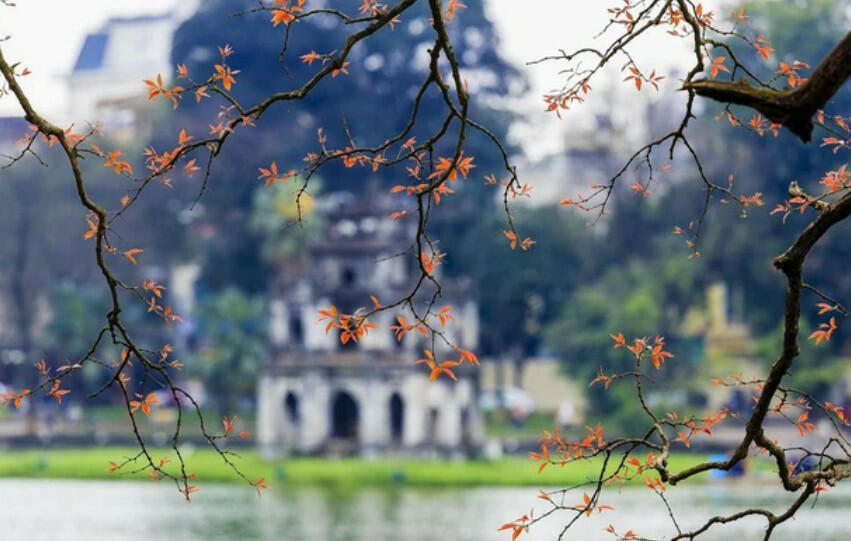
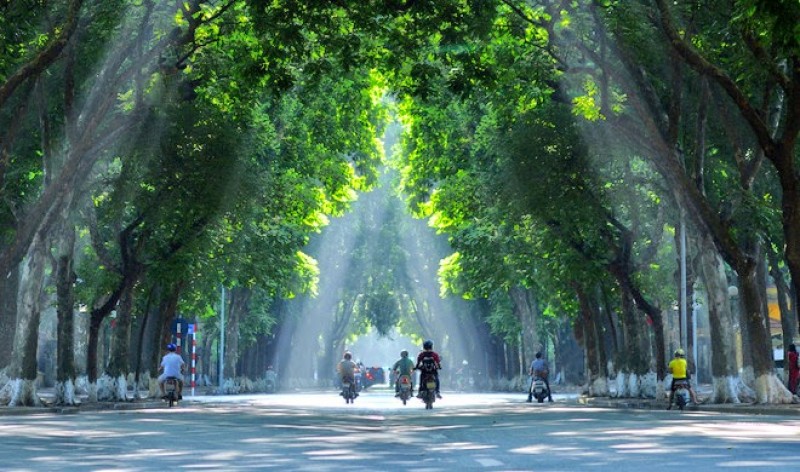



![[Photo] Cutting hills to make way for people to travel on route 14E that suffered landslides](https://vphoto.vietnam.vn/thumb/1200x675/vietnam/resource/IMAGE/2025/11/08/1762599969318_ndo_br_thiet-ke-chua-co-ten-2025-11-08t154639923-png.webp)








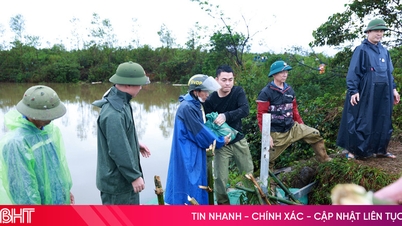




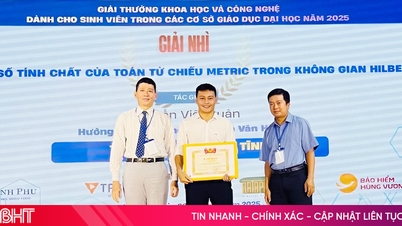




















![[Video] Hue Monuments reopen to welcome visitors](https://vphoto.vietnam.vn/thumb/402x226/vietnam/resource/IMAGE/2025/11/05/1762301089171_dung01-05-43-09still013-jpg.webp)















































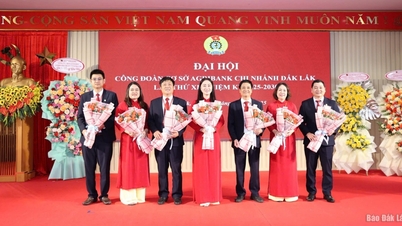






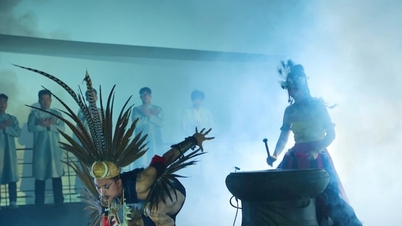












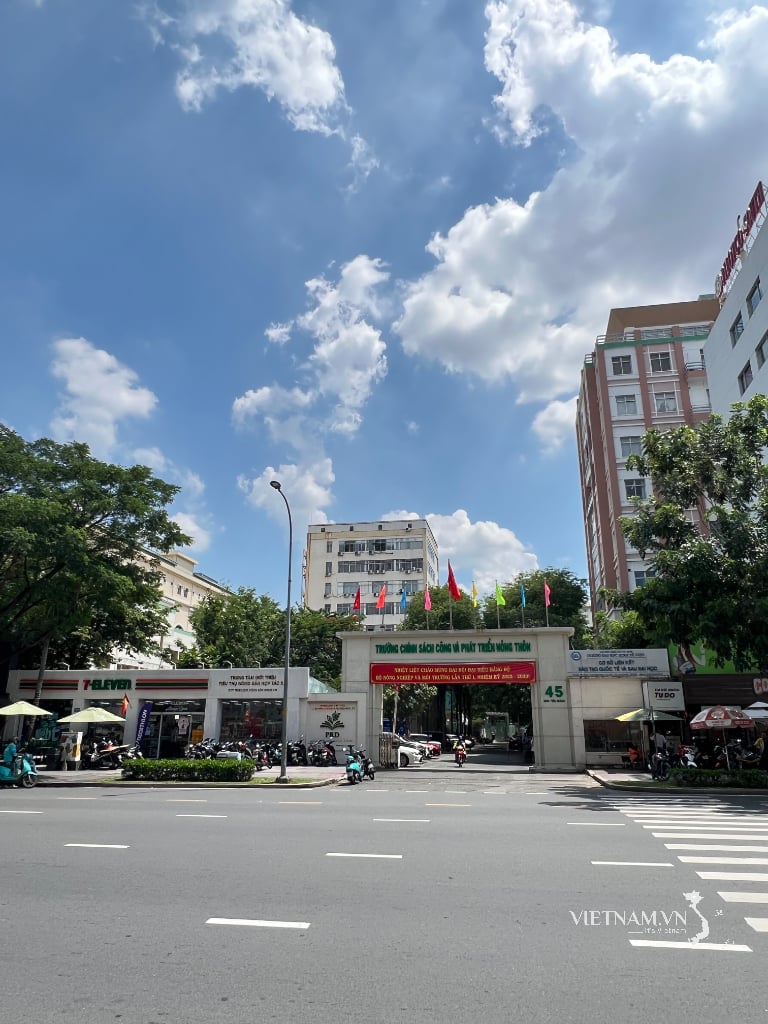

Comment (0)